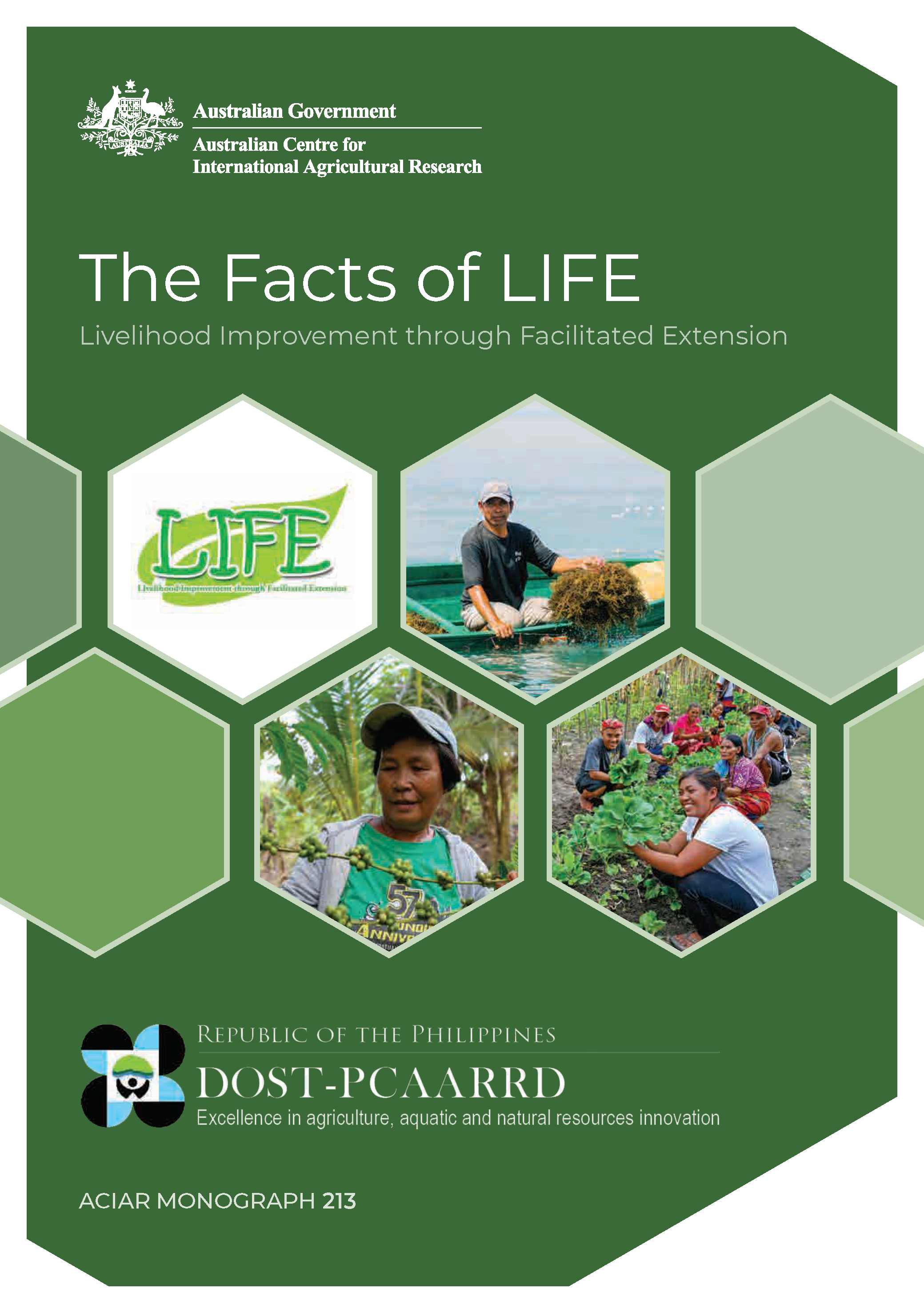- HomeHome
-
About ACIAR
- Our work
- Our people
-
Corporate information
- ACIAR Audit Committee
- Commission for International Agricultural Research
- Policy Advisory Council
- Agency reviews
- Executive remuneration disclosure
- Freedom of information (FOI)
- Gifts and benefits register
- Information publication scheme
- List of new agency files
- Contracts
- Legal services expenditure
- Privacy impact assessment register
- Commonwealth Child Safe Framework
- Benefits to Australia
- Careers
- 40 years of ACIAR
-
What we do
- Programs
- Cross-cutting areas
- Resources
- Where we work
-
Funding
- Research projects
- Fellowships
-
Scholarships
- John Allwright FellowshipScholarships to study in Australia for ACIAR partner country scientists to have Australian postgraduate qualifications
- ACIAR Pacific Agriculture Scholarships and Support and Climate Resilience Program
- Alumni Research Support Facility
- Publications
- News and Outreach
Monograph
Improving livelihoods in conflict-vulnerable areas
Date released
28 June 2021
ISBN
978-1-922 635-10-5
Publication Code
MN213
Overview
Technology transfer initiatives in conflict-vulnerable areas, such as Mindanao in the Philippines, are a challenge because of the risks involved, coupled with the target communities’ detachment and hesitance to participate in government initiatives.
A call from a community leader looking to help his people on the conflict-affected island of Mindanao triggered an ACIAR-supported team to adapt its effective agricultural extension ‘Landcare’ model to help farmers living amid hostilities. The project was a major collaboration between ACIAR and DOST-PCAARRD, and resulted in the development of the Livelihood Improvement through Facilitated Extension (LIFE) model.
This book, The facts of LIFE: An introduction to a new model of agricultural extension for conflict-vulnerable areas of the Philippines, is the culmination of nearly eight years of work to develop and validate what DOST-PCAARRD recognises as the only agricultural extension model in the Philippines that has been specially developed for conflict-vulnerable areas. It offers practical guidelines to local government officials, community organisers and anyone interested in understanding how LIFE works.
It is hoped that the LIFE model will help overcome the barriers to agricultural extension caused by conflict and lead to improvements in the livelihoods and wellbeing of our farming and fishing communities. Improved livelihoods and wellbeing are essential if we are to avoid a cycle of instability and resentment, and thus make lasting peace and reconciliation possible.



